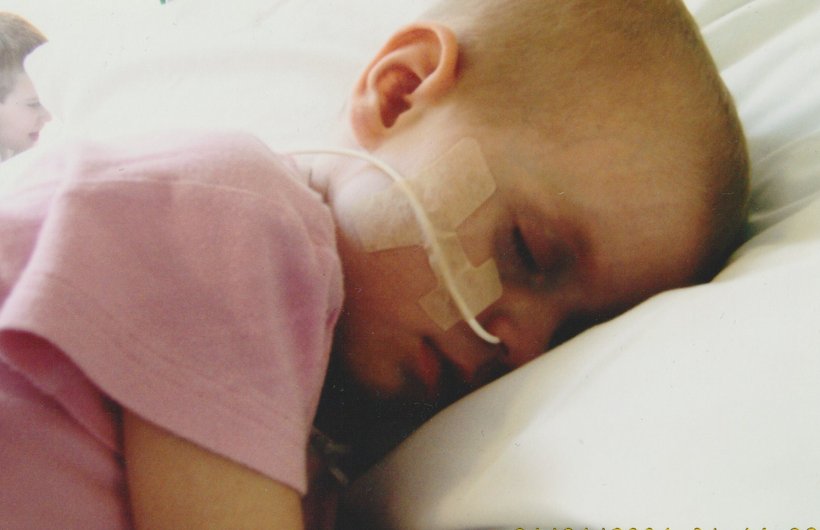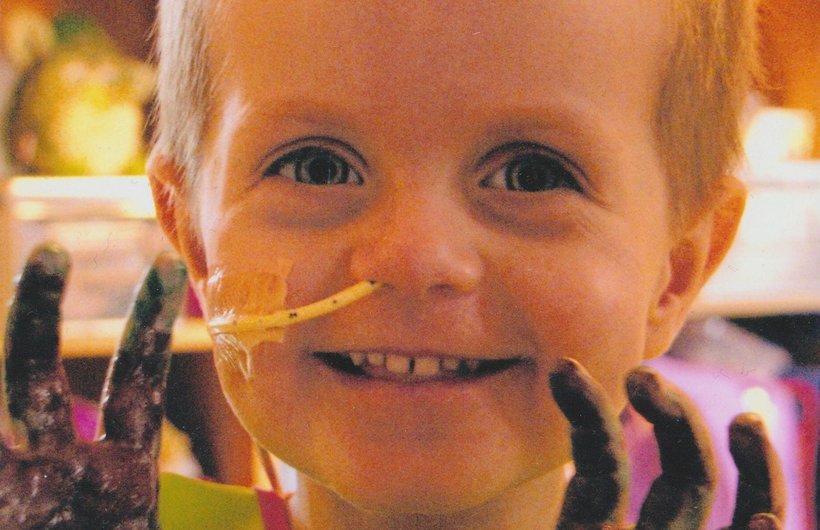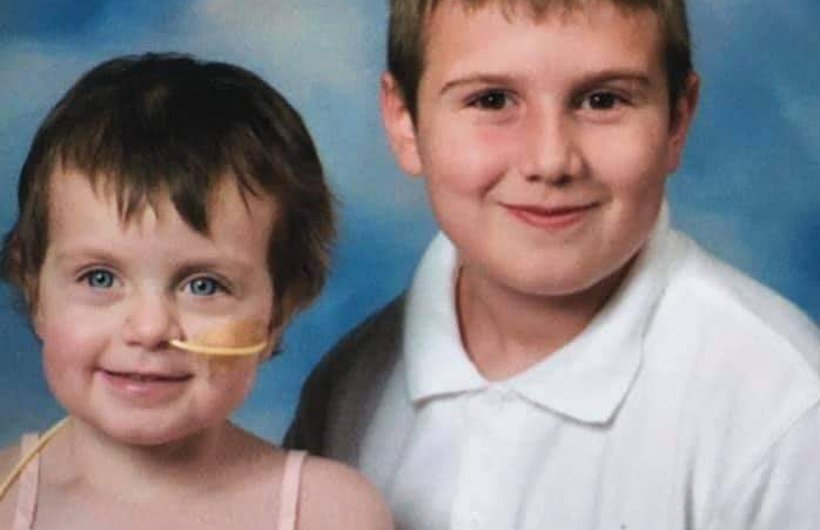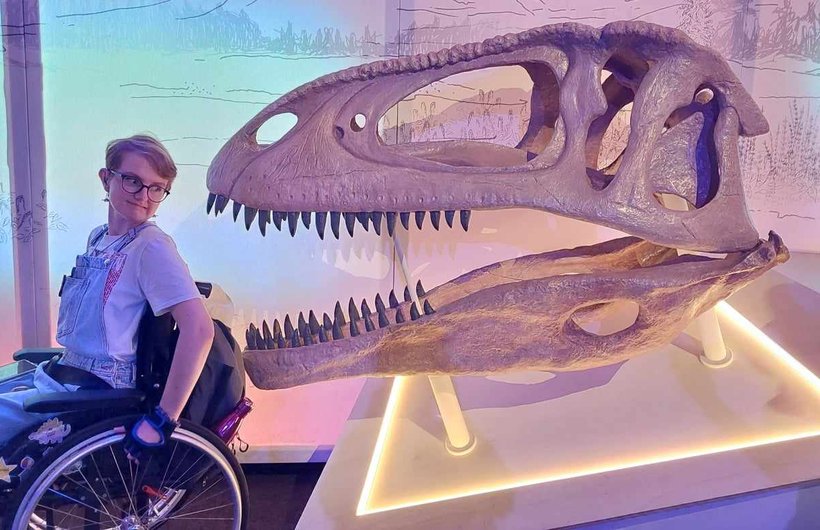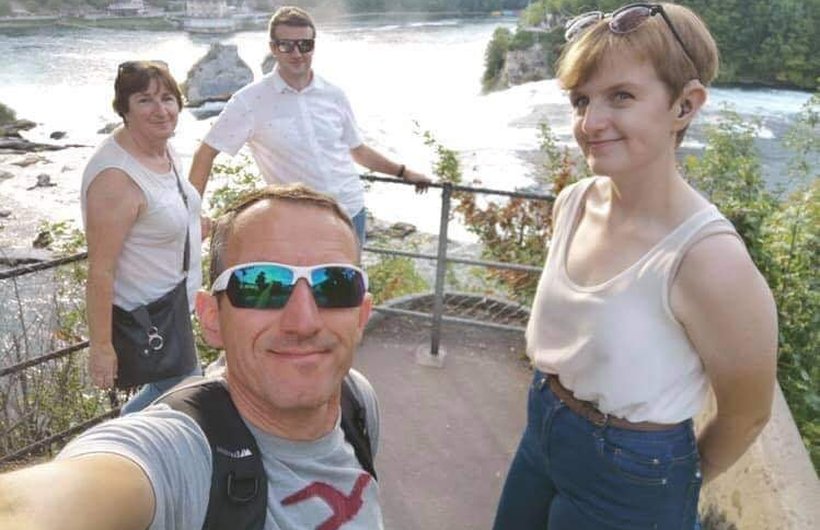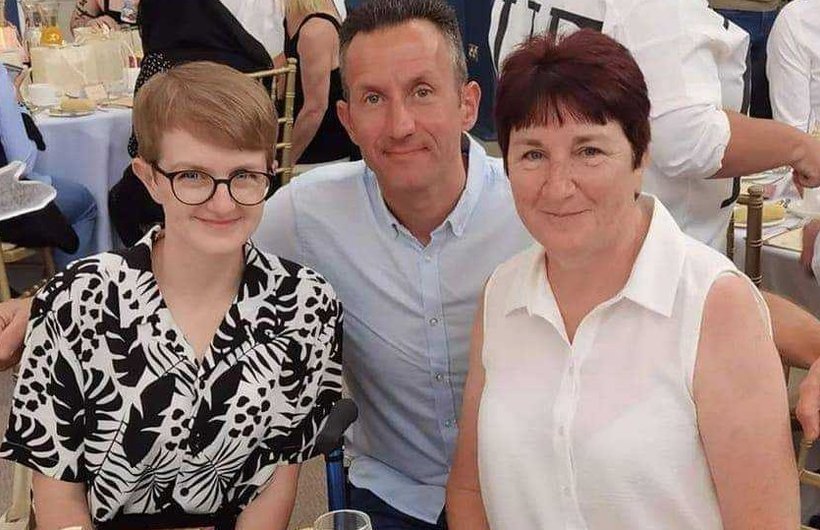
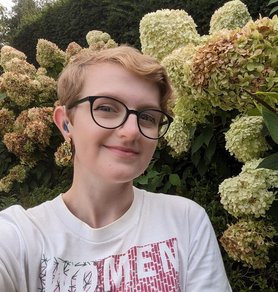
Molly
Molly's journey through childhood cancer, survival, and the physical and mental after-effects is a testament to her resilience, determination, and the power of self-advocacy.
“So many parents have thanked me for being so honest saying, ‘you say what my kid thinks all the time’. I’m glad I can provide a different perspective on how a child or teenager can move forward.”
Molly Treves
Diagnosed with neuroblastoma at the age of two, Molly embarked on a turbulent journey filled with hospital stays, treatments, and many side-effects. Reflecting on her childhood, Molly recounts the challenges she faced and the lessons she learned along the way.
"I remember from the start being really swollen, and I had a nasal gastric tube for the entirety of the treatment," Molly reflects. “I pretty much lived in hospital until remission.”
From enduring chemotherapy-induced hearing loss to experiencing gastric problems and muscle damage, Molly's childhood was marked by adversity. Yet, through it all, she remained resilient, defying the uncertainties that loomed over her future.
One of the most significant hurdles Molly encountered was reintegrating into school, post-remission. Despite her teachers' well-intentioned efforts, the lack of understanding regarding the complexities of her condition made the transition difficult. "It was a massive struggle trying to process everything," Molly recalls. “I was coming back home from school absolutely exhausted.”
Faced with limited support tailored to her unique needs, Molly eventually transitioned to home education which served as a sanctuary for her mental well-being. "In my eyes, it was definitely the right decision. I was really struggling with the side effects and, mentally, I feel like it saved me."
Navigating the mental health landscape proved equally challenging for Molly, with traditional therapies often falling short of addressing her needs. However, a breakthrough came in the form of EMDR therapy. “That was an absolute life saver. It helped me go back and process the trauma from my treatment and childhood. The staff were really open to the fact that this wasn’t necessarily something that would be cured but that I could deal with and live with.”
Despite the hurdles she faced, Molly embraced the opportunity to pursue further education. She ventured into college, defying societal expectations and proving her detractors wrong.
“At first, it was absolutely terrifying! I was scared of everyone’s first impressions of me. I knew because I was deaf I’d have to sit at the front of the class and that already singled me out. I had to walk with a cane and that was the thing people noticed straight away.”
“During the first week or two, I was saying to my mum that I couldn’t do this any more. It wasn’t the work but the people. I was stressed about how I would make friends and integrate, how they would see me as having multiple disabilities and not see me as a person. But, after a few weeks, I managed to settle into a routine and started looking forward to going every day.
“Completing my college course is one of my proudest moments. Having the strength to go through it even when I thought I couldn’t do it. Going from a small pocket of education to a massive one gives me the most fulfilment; to be able to say I did that on my own and successfully.”
The transition from college to a gap year brought its own set of challenges, as Molly grappled with the absence of routine and the resurgence of health-related concerns. Yet, through perseverance and self-reflection, she emerged stronger, armed with a renewed sense of purpose and a commitment to prioritising her wellbeing.
Currently enrolled in an Open University degree programme, Molly continues to pursue her passion for biology while exploring opportunities in museum work and academia.
As Molly looks towards the future, she remains steadfast in her commitment to advocating for survivors and shedding light on the realities of life post-cancer. "The last thing I'd want is for a parent to think their child would completely go back to normal," she assets. “I’ve met so many people who were grateful that I could shed some light on life after treatment as it can be overwhelming.
“So many parents have thanked me for being so honest saying, ‘you say what my child thinks all the time’. I’m glad I can provide a different perspective on how a child or teenager can move forward.”
Molly's journey reminds us that, despite the numerous obstacles along the way, it is our unwavering resilience and determination that truly mould our futures. As she continues to navigate life's twists and turns, Molly stands as a beacon of hope, a testament to the transformative power of perseverance and self-belief. She hopes that her story can inspire and provide hope and guidance to people dealing with similar physical and mental after-effects of cancer treatment.
“If I could advise my younger self,” Molly considers, “I’d say ‘try not to hold yourself to a healthy person’s standard.”
“Have the mindset that the right people will see you as who you are, not for your disabilities or long term effects. They’ll see you for you and find you funny and love you for who you are.”

